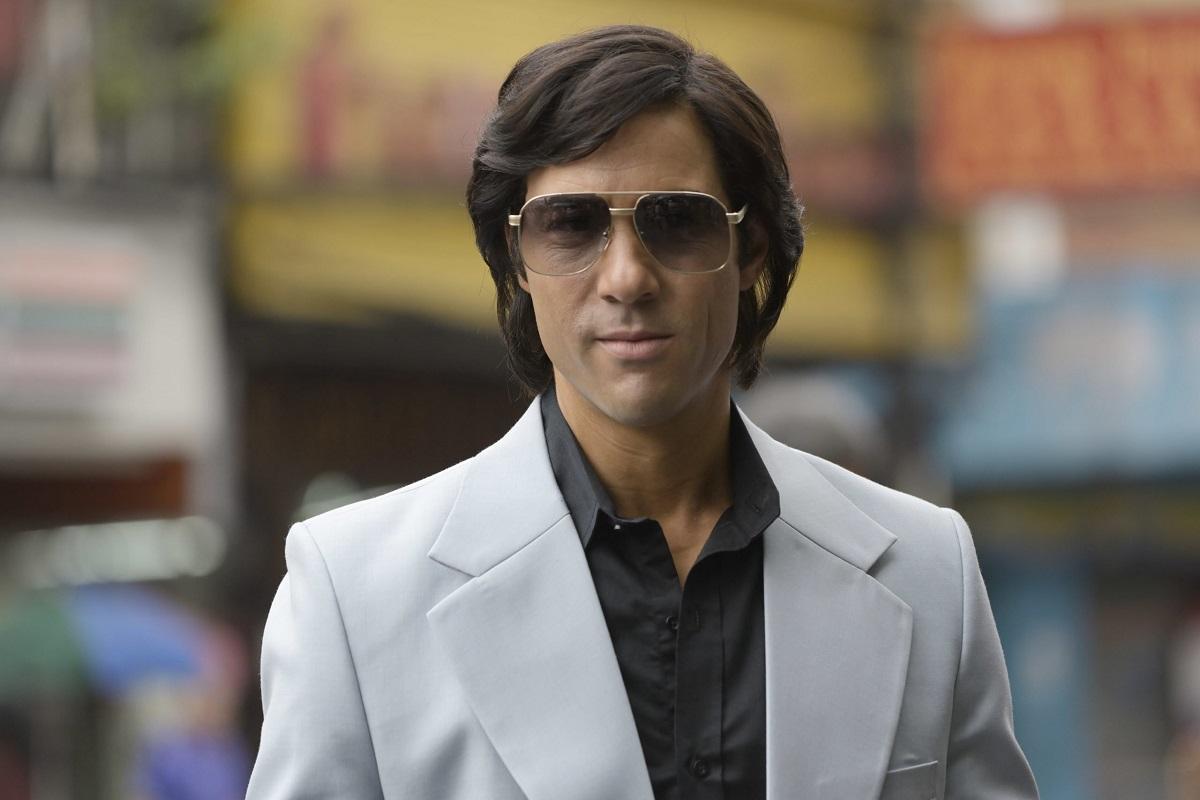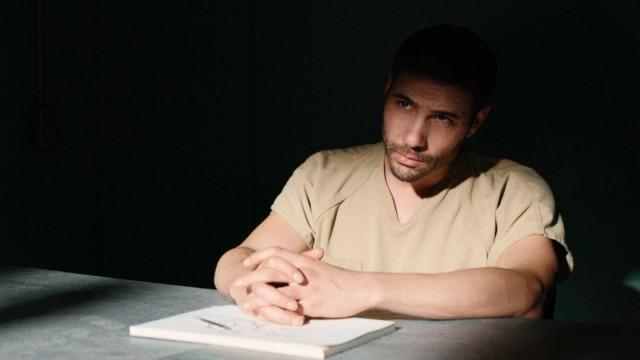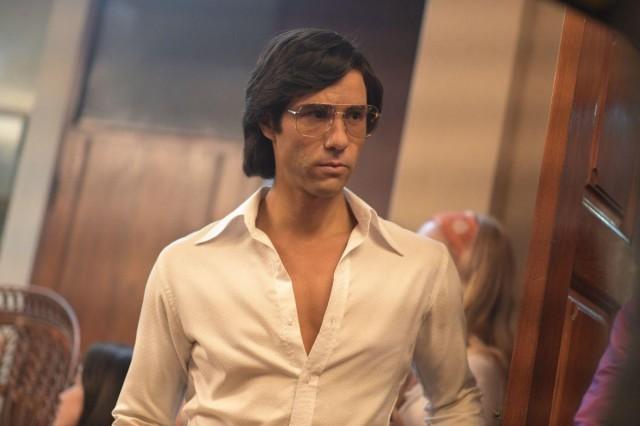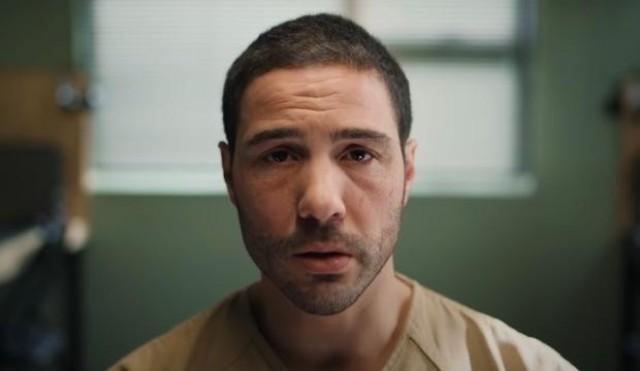'A Prophet' star Tahar Rahim breaks barriers and opens more doors in Hollywood

LOS ANGELES — Tahar Rahim may not be a household name yet, but the French actor of Algerian descent is breaking barriers in Hollywood as he is getting noticed by the critics with his impressive acting talents.
Born in Belfort, France into a family who had immigrated from Oran, Algeria, the 40-year-old actor said in an interview that there was really nothing to do there and so while some kids go walking in the mountains, he just went to the cinema.
"When I told my parents I wanted to be an actor, even though this wasn't normal for Arab kids or anyone in the town, they were sort of expecting it and were very supportive," he said.
He said that he is just a boy from the countryside and that these awards ceremonies exist in another world, like myths.
"They're not something I ever thought about, so it's not a dream come true. It is the impossible made real," he said.
Rahim's work, which includes the French film "A Prophet" (where he won several awards), "The Looming Towers," "The Mauritanian" (where he got nominated in several awards), and "The Serpent" was known not just for its emotional power, but also for his sharp ear in adopting different accents and dialects.
In "The Mauritanian," he played Mohamedou Ould Slahi, who was detained 14 years at Guantanamo Bay without charge. In "The Serpent," he portrayed the infamous serial killer Charles Sobhraj.
He will next be seen in the drama "Don Juan" coming out in 2022 in France and the comedy-drama "She Came to Me" with Anne Hathaway and Marissa Tomei.

Below are excerpts of our conversation with the talented actor:
In portraying Mohamedou Ould Slahi, did you ever feel angry for this injustice he experienced? Were you able to understand why he offered only forgiveness in spite of what he went through?
I couldn't understand it before I started to talk with him and meet with him and spend time with him because yeah of course, when you live an injustice and a simple one that we all go through every day or every week, you get angry a little bit. Like, why? Why me, I did nothing wrong, it's not good, it's not cool. And so I asked him, I was, I couldn't be able to be you in a way, in this specific way. And I came to realize that this was the only way for him to survive, to not fall into despair or going crazy. Plus, I think he might be a very special soul at the very beginning to be able to reach such wisdom. And he is like that.
I heard that you wanted to feel viscerally the torture that he went through to reach that state of mind. Did that really help you?
Yeah, I don't know if I just didn't know how to make it up or if I'm not experienced enough yet to just do it like that, what I felt and what I believed in was to kind of experience it for real. There's nothing compared to what Mohamedou has been through all right, don't get me wrong, but I needed to get a feel so I could give genuine feelings to the audience. And I couldn't find another way to make it possible. I couldn't make it otherwise.
Plus, as an actor, each time I perform it's very hard for me to believe in what I am doing and in order to make that happen I needed to put myself in realistic conditions. What I did is, the first day we shot, which was very surprising because my first day of shooting is the ending of the movie. Jodie was meant to come earlier and she got sick so the schedule changed and Kevin said listen, you have to start with the final monologue. I'm like, huh? I had to start with the ending.
So it was... well, a lot of pressure. And this day of course I'm shackled and the props came up with fake cuffs so I asked them to bring me the real cuffs and real shackles so I can feel more real. I needed to touch a little bit of reality. So I did and I kept the bruises till the end of the shooting, even afterwards. I did that, I asked them to make the cell as cold as possible and it was not enough. So I said listen, spray me with water, with cold water. So I started to feel it and then it was real to me so I could make it bigger inside of me and in a way, live it.
The water boarding, we did it for real as well, we had our own tricks, codes, I would tap three times my partner so he would stop if it would be dangerous. And force feeding as well. What else? What else we got? And the diet, the diet. He was not eating, he was suffering, he couldn't sleep at all so of course he lost a lot of weight and I needed to physically look like him so I lost maybe 10 kilos within 18 days eating boiled eggs, chicken breasts, things like that.

And watching you portray the cold blooded serial killer Charles Sobhraj in "The Serpent," how different was the process?
You know, in the case of Mohamedou, the character; I had a lot of conversation back and forth over the months with Kevin. So it helped me to every day step by step I would learn more and it would fill my imagination, my feelings, my body over the months. So I reached a point, we talked about it.
But in the case of Charles usually I build my characters from inside and with Charles, I couldn't do it because I don't find any relationship, I don't feel related to him at all, in any way. I was, how am I going to portray him? How can I do it? And of course I studied murderers, conmen, I read the book, I watched a lot of documentaries, I met with specialists, but still I couldn't get it. And the first two weeks were very hard. I've got to thank my director because he helped me a lot. And what I tried... I was ok, it's not working this way, try the other way around.
So I started to build him from outside. I thought about his look, the way he would walk, his physicality, how he would behave when he would enter a room, thinking of others. I did that and I thought of an animal, and you got the serpent of course, he was a serpent but which one? I thought of the cobra. The cobra has to deal generally with charm, each time you see a cobra or you hear about a cobra you think about the flute and the charm and the music. And when they hunt their prey they stare at them, they wait, they don't move and at some point, they just bite them suddenly in a second, boom. And I thought, Charles would be like that.
So Tom and I we had to make some choices, the way he would behave, he would talk, because we didn't have enough footage or material about Charles.
And the character Nadine Gires (portrayed by Mathilde Warnier) is still alive. Did you consult with her?
Yeah, absolutely, she came on set. And it was such a relief to listen to her. We looked at each other with Tom and we said, ok cool, we did the right choices. So the two weeks we'd just done are good. We're not mistaken. But still I needed to self-isolate myself.
I remember when we shot this movie "Black Gold." Mark Strong, a great actor, he was playing the king. And we would chitchat between scenes and he taught me something. He said, "Listen, when you play a king, you don't play the king, people surrounding you play the fact that you're the king." And I recalled that so I needed to self-isolate anyway, to stay focused and to keep my character fresh and to give what I have to give to do my job. But I wouldn't talk to my partners, even if they would come to me and say hello, I was poker faced and I wouldn't talk. And that created a strange atmosphere on set.
So each time they would come close to me they didn't know exactly what they had to do, which created this thing when I would come in my apartment or somewhere, they would change their behavior. And the camera would see it. But each time we would wrap I would go with them and have a drink and talk, I'm not crazy. But I needed to do this and after three weeks we started to relax because we were all going in the same direction. But yeah, it was tough.
Which character do you enjoy more playing? Which is more satisfying?
Well, as an actor, both for different reasons. I never went back as far as that deeply in a character than Mohamedou experience-wise. It was unique and on the other side I always wanted to play someone who's almost evil because I didn't know if I would be able to make it happen, to be the guy and it was unique too so, yeah, I got this year I got blessed really.
Really happy to have had the opportunity to play such different characters but I find it harder to get into Charles than into Mohamedou. I got rid of Charles very quickly but Mohamedou stayed with me for three weeks. First time in my life I couldn't get rid of my character. Can't explain why. It was too hard to just, you know, click and go. I couldn't.

That's interesting. Does that happen to you with other characters that some stay with you and others just leave you the moment you take off that veil?
No, usually it's easy for me to get rid of my characters but it's the first time in my life that it took me that much time to be back to me, to get back to me to Tahar.
Does that have anything to do with cultural resemblance or maybe experiences that resonated with you in your life or relatives or friends?
No, I think it has to deal with the experience of going that deep and because we finished the shooting with the torture scenes, the five last days so I think it was more of a physical state than Mohamedou himself. It was more of an experience, a physical experience and when I got back home, I was the same. I was still Mohamedou physically so I would see him every day in the morning in my mirror. Every day I would still talk like him, move like him and I think it has to do with his physicality and the experience I've been through.
And, of course, they both came from the same religion, similar culture and in both cases, you had to work hard to learn the Lebanese dialect and then the Mauritanian dialect. So there is some resemblance in the experience trying to learn languages and their way of life. What was easier?
Oh languages, languages. It was tough. Very tough for me to learn Lebanese for "The Looming Tower" and, yeah, I worked a lot with my Lebanese coach and this time okay, maybe I might use some things that I've learned before in "The Looming Tower" so to use them in "The Mauritanian" so, yeah, sometimes I'm a bit lazy and I'm like okay, I did that before.
I can use it but the language spoken in Mauritania is absolutely different. It's way closer to Algerian which helped me to understand but still there's a lot of differences and the accent is totally different. Phonetically and the meanings of the words I would say but what I found the hardest thing to do regarding the languages was classic Arabic. It's tough. It's really tough because I grew up with two different languages: French and Algerian and Algerian is so different than classic Arabic.
What was your family's reaction when you decided to become an actor?
My brothers and sisters, I think they thought at the time that it was a teenager dream. So they didn't take me for seriously and they were right. It was a teenager dream. I could have picked, I don't know, a soccer player, but the more I would watch movies, the more this dream turned into a desire and this desire turned into a need. I needed it. My mom, she always believed in me. She always told me, "Yes, it'll happen to you. You just keep working. I know." She's the only one who started to believe in me, more than I would.
And my sister told me, "Listen, now you need to pick a direction to go to university and do something concrete." And I said, "Okay." I tried. I lost myself in different thing. I studied sport. I studied IT and it was not for me. At some point I said, "Listen, I'm going to do this. So I'm going to study cinema at university." And she was like, okay. And then I passed my exam and I worked during the summer. I had only €1,200 in my pocket and I went to Paris with my bag, I went to a hotel room for a week. And then I started to try to make it happen and I had two different jobs during the day and night and I would go to my theater class. I was exhausted. And someday I had an audition and they called me back.
Which was that?
It was to play an important part in a TV show. It's called "La Commune" it was for Canal+. And yeah, I have that part and when I did that audition, the director Philippe Triboit came back to me and he said, "Listen, you might be too old for the part. But if I don't find my actor, you'll be lucky." And he called me back two weeks later saying, "You're lucky. You got the part."
And it started there because the script writer was the same script writer who wrote "A Prophet." So Jacques Audiard came on set to visit him while I was shooting. And that very day I was supposed to finish at seven and the director came up and he said, "Listen, we can't shoot. We don't have time. You can go home." And I went back in the same production car [with] Jacques Audiard. And I knew what he was preparing, I wanted to have the part. And the best thing I did, I guess, is to just shut my mouth up. I didn't talk. And we were with one of my partners and he would tell him, "I'm playing this at the moment. If you want to, come." And I was like, "No, man, you're going to the wrong direction. Just don't say anything. If it has to happen, it will happen."
And then he came to see the two first episodes on a streaming and I was there and he came to me. He started to tell me good things. And I was really happy I called my agent and said, "Listen, I think I can have an audition. I want that audition." And I didn't have only one audition, I had eight. He killed me before saying you got the part.
—MGP, GMA News




